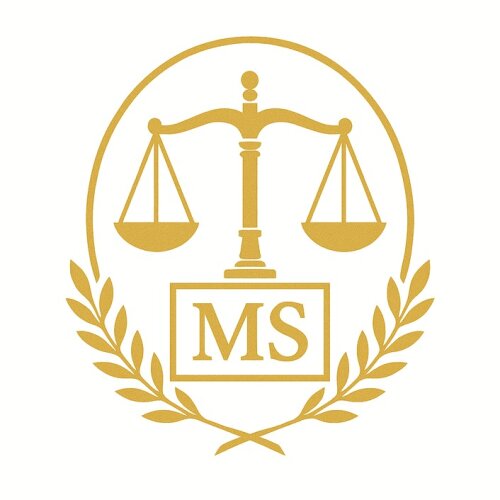Best Arrests & Searches Lawyers in Kozhikode
Share your needs with us, get contacted by law firms.
Free. Takes 2 min.
List of the best lawyers in Kozhikode, India
About Arrests & Searches Law in Kozhikode, India
Arrests and searches are fundamental aspects of the Indian criminal justice system, including in Kozhikode, Kerala. These legal processes are governed by national laws, primarily the Code of Criminal Procedure, 1973 (CrPC), and relevant provisions of the Indian Penal Code (IPC). In Kozhikode, law enforcement officers-such as the Kerala Police-must follow strict procedures when arresting individuals or conducting searches, in order to protect citizens' rights and ensure justice is served. Any deviation from established procedures may render an arrest or search unlawful, potentially impacting the outcome of a legal case.
Why You May Need a Lawyer
If you or someone you know is involved in matters related to arrests and searches, legal representation is extremely important. Here are some common scenarios in which legal help may be required:
- You have been arrested or detained by the police.
- Your home, office, or property has been searched by law enforcement agencies.
- You believe your arrest or search was conducted without proper legal compliance.
- You want to file a complaint about police misconduct during an arrest or search.
- You need advice on your rights and obligations during police procedures.
- You are a victim of wrongful arrest or false charges.
- You require bail or legal representation in court.
- You are summoned as a witness or suspect in a case involving arrest or search.
A qualified criminal lawyer can help you understand your rights, challenge unlawful police actions, secure bail, and safeguard your interests during these critical moments.
Local Laws Overview
Arrests and searches in Kozhikode are primarily regulated by the Code of Criminal Procedure (CrPC) and subject to interpretations by Kerala's judiciary. Key points include:
- Arrest Procedures: An arrest can be made with or without a warrant, depending on the gravity of the offence and the circumstances. The police must inform the person being arrested of the reason for the arrest and, if possible, show the warrant.
- Rights of the Arrested: Every person arrested has the right to remain silent, consult a legal practitioner of their choice, inform a friend or family member about their detention, and be produced before a magistrate within 24 hours, excluding travel time.
- Search Procedures: Searches may be conducted with a search warrant issued by a magistrate. In certain urgent situations, police officers may conduct searches without a warrant, but must follow prescribed protocols and prepare an inventory of seized items.
- Women and Juveniles: Special protections are afforded to women and minors. For example, searches of women are to be carried out by female police officers, and minors are to be dealt with according to the Juvenile Justice Act.
- Kerala Police Act & Kerala State Rules: Local law enforcement operates within the framework of the Kerala Police Act and related state-specific guidelines, which may introduce additional safeguards relevant to arrests and searches in Kozhikode.
Frequently Asked Questions
What should I do if I am being arrested by the police?
Stay calm and cooperate. Ask for the reason for your arrest, request to see the arrest warrant if available, and immediately seek to contact a family member or lawyer. Do not sign any documents or make statements without legal advice.
Do the police need a warrant to arrest someone?
Not always. The police can arrest without a warrant if the offence is cognizable (such as theft, assault, or murder). For non-cognizable offences, they generally need a warrant from a magistrate.
What are my rights during an arrest?
You have the right to know the grounds of your arrest, to remain silent, to be informed of your right to bail, to consult a lawyer, and to be produced before a magistrate within 24 hours of arrest.
Can my home be searched without a warrant?
Generally, police need a search warrant to enter and search your property. However, if there is credible information or urgent circumstances (such as to prevent the destruction of evidence or escape of a suspect), they may conduct a search without a warrant, but must report the reasons and seek validation afterwards.
Are women provided any special protection during arrest and search?
Yes. Female suspects can only be searched by female police officers, and arrest of women after sunset and before sunrise is restricted unless exceptional circumstances exist, and must be authorized by a magistrate.
What can I do if I believe my arrest was unlawful?
Consult a lawyer immediately. You may have grounds to file for bail, seek discharge from charges, or pursue a complaint or legal action against the police for unlawful arrest or violation of your rights.
What is anticipatory bail and when can I apply for it?
Anticipatory bail is a pre-arrest legal measure you can seek from a court if you believe you might be arrested for a non-bailable offence. If granted, you cannot be taken into custody by the police for that offence.
What is a personal search, and how is it conducted?
A personal search involves the police frisking or checking a person's clothing and belongings for evidence or weapons. This should be conducted with decency and respect for privacy, particularly when involving women, who must only be searched by female officers.
Do I have to allow the police into my house for a search?
If they have a valid search warrant, you are generally required to allow entry. If they lack a warrant, they must demonstrate an urgent need; you can request to see their identification and the written authority or explanation for the search.
Can I record or have witnesses during a search or arrest?
It is advisable to have independent witnesses (panchas) present during a search, as required by law. Recording the procedure may be allowed, but always inform the officers. Your lawyer will guide you based on the specifics of the situation.
Additional Resources
- Kozhikode District Police Headquarters: For official complaints, queries, or information about arrest and search regulations.
- Kerala State Legal Services Authority (KELSA): Provides free and subsidized legal assistance for eligible individuals.
- Legal Aid Clinics at Kozhikode District Court: For guidance on criminal rights and legal representation.
- Human Rights Commission, Kerala: For complaints regarding police misconduct or rights violations during arrest or search.
- Local Bar Associations: For a directory of experienced criminal lawyers.
Next Steps
If you are involved in or affected by an arrest or search in Kozhikode, follow these steps:
- Remain composed and ensure you understand your rights and obligations during any interaction with police.
- Contact a qualified criminal lawyer immediately. Early legal intervention can prevent rights violations and ensure due process.
- Collect documentation-such as arrest memos, search warrants, FIR copies, or details of the officers involved.
- Leverage available resources, including legal aid services and local bar associations, to find the right legal support.
- Make a record or seek witnesses of the arrest or search process wherever feasible.
- If you suspect illegal action by law enforcement, file a formal complaint with the appropriate oversight bodies or human rights organizations.
Remember, timely legal advice can make a significant difference in safeguarding your rights and ensuring a fair legal process.
Lawzana helps you find the best lawyers and law firms in Kozhikode through a curated and pre-screened list of qualified legal professionals. Our platform offers rankings and detailed profiles of attorneys and law firms, allowing you to compare based on practice areas, including Arrests & Searches, experience, and client feedback.
Each profile includes a description of the firm's areas of practice, client reviews, team members and partners, year of establishment, spoken languages, office locations, contact information, social media presence, and any published articles or resources. Most firms on our platform speak English and are experienced in both local and international legal matters.
Get a quote from top-rated law firms in Kozhikode, India — quickly, securely, and without unnecessary hassle.
Disclaimer:
The information provided on this page is for general informational purposes only and does not constitute legal advice. While we strive to ensure the accuracy and relevance of the content, legal information may change over time, and interpretations of the law can vary. You should always consult with a qualified legal professional for advice specific to your situation.
We disclaim all liability for actions taken or not taken based on the content of this page. If you believe any information is incorrect or outdated, please contact us, and we will review and update it where appropriate.










